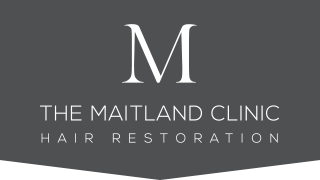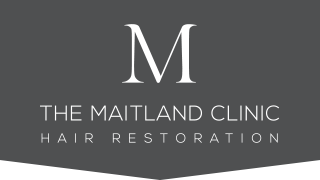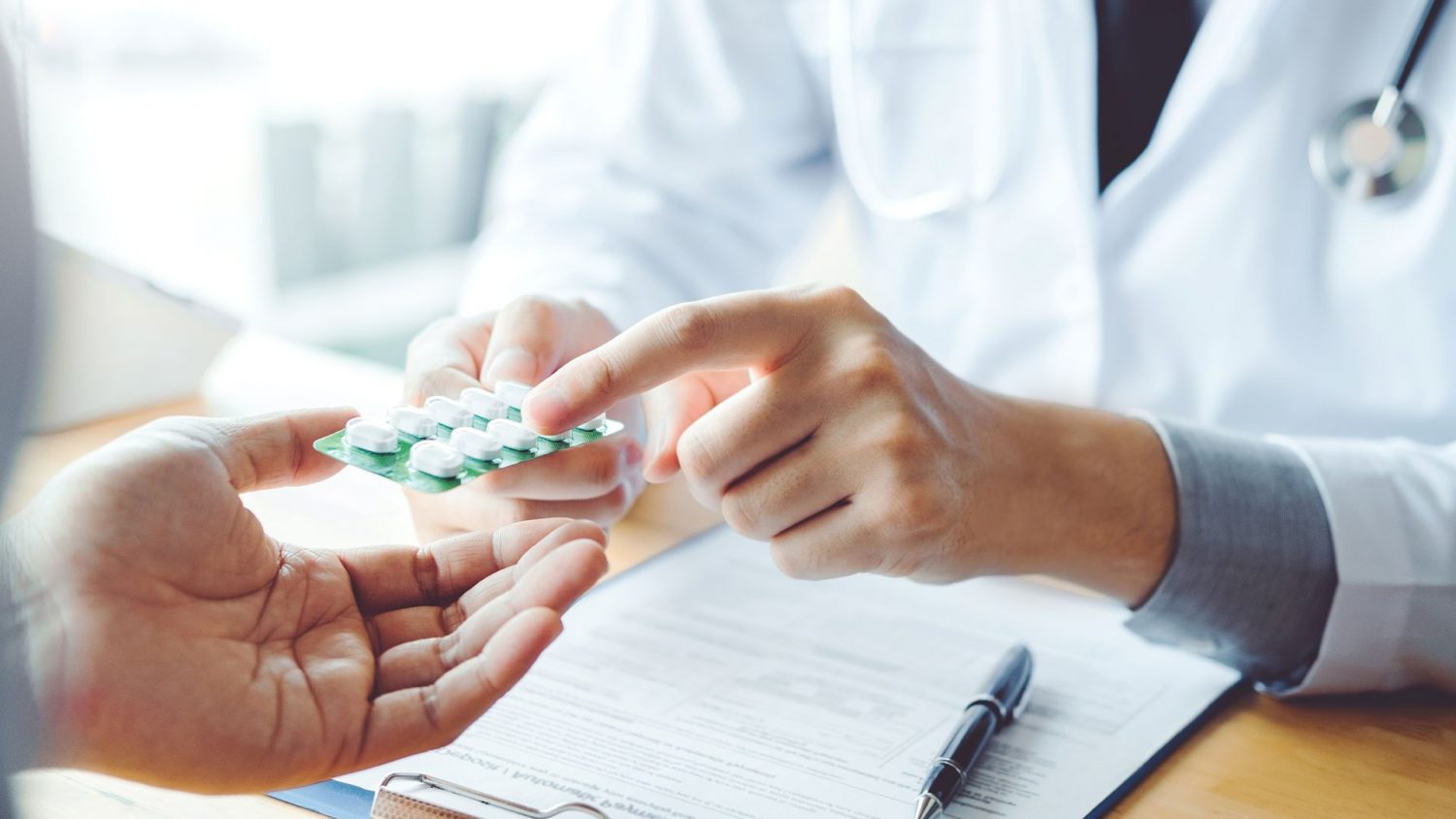Oral minoxidil for hair loss
30th March 2024
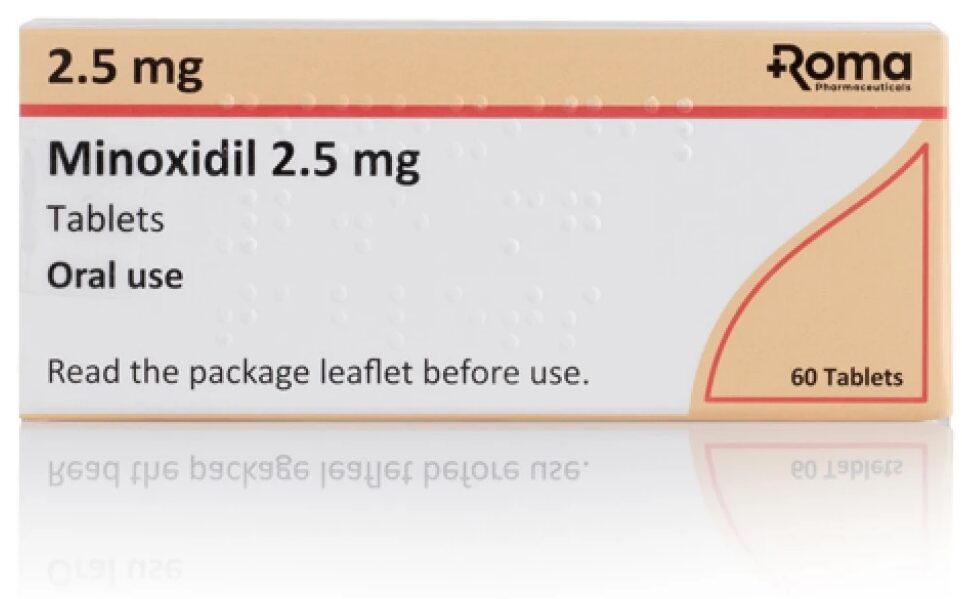
As hair loss treatments continue to advance, a wide range of high-quality hair loss medication has become available. Oral minoxidil is a medication which is emerging as a promising treatment option for a wide variety of hair loss conditions.
What is oral minoxidil?
Minoxidil has been well established as an effective hair loss treatment for some time. Many people may be familiar with the traditional form of minoxidil which is known for its topical application, such as a scalp solution or foam.
However, more recently, oral minoxidil (minoxidil in tablet form) is now also being recognised as a convenient and effective hair loss treatment.
Minoxidil in a tablet form was initially launched as a medication for treating high blood pressure (hypertension). However, many patients taking oral minoxidil began experiencing significant hair growth. This discovery paved the way for its use in treating hair loss, albeit, in a much lower dose than that used to treat hypertension.
Because research on oral minoxidil is still ongoing, the hair loss medication is ‘off-label’. This means that although the drug is FDA approved (U.S. Food and Drug Administration) to treat high blood pressure, it’s not yet approved for the use in hair loss. No standard dosage of oral minoxidil has been established yet, and the medication dose can range from 0.25mg to 5mg. The most effective dose for each person usually depends on a range of individual factors.
How does oral minoxidil treat hair loss?
Oral minoxidil works by widening blood vessels (hence why it is typically used to reduce blood pressure), enhancing blood flow to hair follicles. This process improves follicular nutrient delivery and oxygen supply, vital for hair growth. What’s more, minoxidil helps to prolong the growth phase of the hair cycle, encouraging denser, fuller hair.
Essentially, oral minoxidil creates a suitable environment for hair growth, encouraging hair follicles to grow thicker and healthier.
When is oral minoxidil used to treat hair loss?
Oral minoxidil is usually used for male and female pattern hair loss, also known as androgenetic alopecia. However, it has also been researched and shown some benefit in treating other types of hair loss, including traction alopecia, telogen effluvium, alopecia areata, and post-chemotherapy hair loss.
As more research is needed before oral minoxidil is FDA approved for hair loss, it’s generally not used as the first line of treatment. However, oral minoxidil is often considered when:
- other treatments like topical minoxidil aren’t showing any improvements
- other treatments are causing side effects such as a rash or poor hair texture.
How effective is oral minoxidil?
Although more evidence is needed, existing research shows that oral minoxidil is a well-tolerated and effective hair loss tablet. A review of multiple studies on oral minoxidil found the drug increased hair length, improved hair density, and reduced hair shedding, proving especially helpful in patients with poor response to other therapies.
Whether oral minoxidil is more effective than topical minoxidil or other medications is still up for debate. One study compared 1mg daily oral minoxidil with a 5% topical minoxidil solution over 24 weeks and found that both treatments led to reduced shedding and increased density. Oral minoxidil offered slightly better results than the topical solution, but the difference was not statistically significant.
Another study found that 5% topical minoxidil had better therapeutic effect than 1mg oral minoxidil, but again, this difference was not significant.
The effectiveness of oral minoxidil often depends on lots of personal factors, such as the type and extent of hair loss being treated and the dose being used. Higher doses tend to lead to greater improvements in hair growth, but also have an increased chance of adverse side effects.
What are the side effects of oral minoxidil?
Like most medications, oral minoxidil may cause some side effects. While the overall likelihood of side effects are low, it’s important to be aware of some of the risks.
Side effects of low-dose oral minoxidil include:
- Excessive hair growth on the body and face (reported in 10-25% of people on a low-dose and up to 50% of people on a higher dose)
- A lower blood pressure which may cause dizziness or lightheadedness (1.7% of people)
- Ankle swelling and fluid retention (1.3% of people experience lower leg swelling. Some people can also experience swelling around the eyes but this is very uncommon)
- Rapid heart rate (tachycardia)(0.9% of people)
- Headaches (0.4% of people)
The figures above are from one of the largest studies on low-dose oral minoxidil. Other very uncommon side effects have been seen in some studies, including nightmares, insomnia, pericarditis, skin rashes, nausea, vomiting, breast tenderness, and allergic reactions. These effects are very rare.
Unlike some other hair loss medications such as oral finasteride, oral minoxidil is very unlikely to cause sexual side effects.
When is oral minoxidil not suitable?
Although oral minoxidil can be an effective treatment option for some, it’s not suitable for everyone. The medication should be avoided by those who:
- are pregnant, breastfeeding, or trying to conceive: this is because there is a lack of research on the impact of using oral minoxidil in these situations
- are on medication to reduce their blood pressure
- have certain health conditions, particularly heart problems
This list is not exhaustive. It’s important to discuss your suitability for oral minoxidil with a qualified professional. Oral minoxidil is only available by prescription and requires regular supervision.
What dose of oral minoxidil is best?
It’s not clear what the most effective dose of oral minoxidil is. It is usually in the region of 1.25mg to 5mg daily. This is considered a low dose compared to minoxidil tablets which are used for conditions such as high blood pressure.
While both men and women can take oral minoxidil, women usually require a lower dose than men.
At The Maitland Clinic, our extensive consultation process helps to establish the right dose and treatment regime for you. As we are also able to prescribe oral minoxidil medication, we can monitor your progress and adjust your dose accordingly.
Frequently asked questions
Is oral minoxidil safe?
While low-dose oral minoxidil is yet to be approved for the treatment of hair loss, it is generally considered a safe treatment. This is based on the drug being prescribed by a healthcare professional and used according to their guidance. It’s important to tell your professional about any pre-existing health conditions and remember that research is still ongoing.
How long will oral minoxidil take to work?
The effects of oral minoxidil can take between 6 and 12 months to show. For the most effective results, it’s important to keep taking your medication as prescribed.
Will I need to take oral minoxidil forever?
Oral minoxidil helps to slow down the progression of hair loss. It’s likely that hair loss will still happen – just at a slower speed. If oral minoxidil is stopped, the effects do not continue. This means that for most people, oral minoxidil is a long-term treatment.
Can oral minoxidil help with beard growth?
Oral minoxidil helps to boost hair growth in general, meaning you may see increased facial hair growth, as well as growth in other areas. This is a desirable effect for some people, but it can cause distress in others. Lowering the dose can sometimes help to reduce this side effect if unwanted.
Does oral minoxidil affect fertility?
Some hair loss treatments have shown evidence of reducing fertility. However, low-dose oral minoxidil shows little to no evidence of impacting fertility in men and women. It should be kept in mind that there is not extensive research in this area.
Does oral minoxidil cause hair shedding?
Topical minoxidil is known for causing temporary hair shedding when you start using the treatment. Oral minoxidil may also cause some temporary shedding in the first 6 weeks of starting treatment. However, this shouldn’t last longer than 4-6 weeks. It can be alarming but it’s important to speak to your prescribing clinician who will be able to advise whether to keep taking oral minoxidil or whether the dose should be adjusted.
Oral minoxidil at The Maitland Clinic
At The Maitland Clinic, we will undertake a comprehensive consultation to establish your needs and suitability for certain hair loss treatments. This involves assessing your general medical health and also your hair loss history. If we think oral minoxidil might work for you, we will discuss in-depth how the treatment works, what results to expect, the evidence behind the drug, and the specific side-effects to look out for.
We make sure you have all the information to make a fully informed decision about your care. From here, we are also able to prescribe medication and provide ongoing care and adjustments to your medication regime.
If you would like to learn more about oral minoxidil and discuss your options for hair loss medication, please get in touch with us by completing our enquiry form or calling us on 02392 706122.
